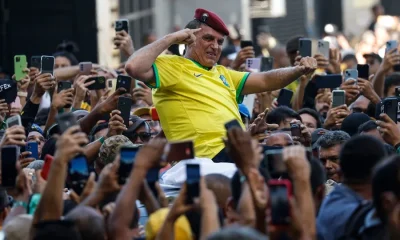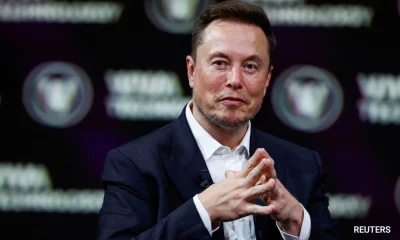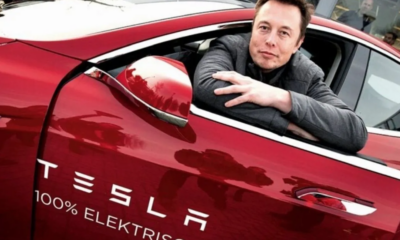International
Elon Musk takes stand in Tesla tweet fraud trial
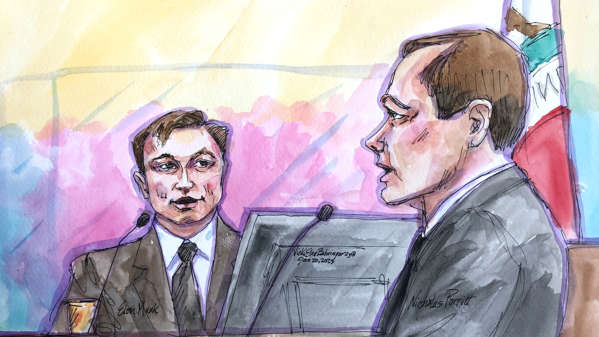
January 23 | By AFP | Glenn Chapman |
Tesla CEO Elon Musk took the stand in a California fraud trial on Friday, accused of lying in tweets about taking the auto company private, punishing investors.
Musk was called to testify by lawyers for angry investors who accuse him of costing them millions of dollars in 2018 with untrue tweets about having funding secured to buy out shareholders at $420 a share.
The multi-billionaire’s tweets sent the Tesla share price on a rollercoaster ride and Musk was sued by shareholders who say the tycoon acted recklessly in an effort to squeeze investors who had bet against the company.
Musk, who bought Twitter itself in October, downplayed the power of his tweets noting under questioning that he once posted that he thought Tesla share price was too high, and “it went higher, which is counter-intuitive.”
“What I’m trying to say is that the causal relationship is clearly not there simply because of a tweet,” Musk said in a testimony that lasted only thirty minutes and was to be continued on Monday.
The hearing on Friday began with Harvard law and business professor Guhan Subramanian, who was called as an expert witness by the plaintiffs.
He called Musk’s tweeted proposal to take Tesla private as “illusory” and “just wrong” in how it deviated wildly from the way such mega-deals usually take place.
“All I can say is this is just wrong; as a matter of deal process… this isn’t correct,” Subramanian said while being questioned by a defense lawyer about Musk’s tweets.
‘Reckless’ words
Testimonies in the trial opened Wednesday with a lawyer for the upset investors telling jurors Musk lied about having funding in place.
Nicholas Porritt, who represents lead plaintiff Glen Littleton and other Tesla investors, said the tweets cost “regular people” to lose “millions and millions of dollars.”
Called as the first witness, 71-year-old Littleton told jurors he was heavily invested in Tesla in 2018 in a way that banked on the share price climbing to $500 or more.
Littleton testified that he was “pretty shocked” by Musk’s tweet about taking the company private at $420 a share because it threatened almost all the money he had invested in Tesla.
“It was going to pretty much wipe me out,” Littleton said.
Littleton told jurors he scrambled to save what he could of his investments, getting out of most of his positions at a huge loss.
Musk is expected to continue testifying at trial on Monday, when his lawyers will get a chance to refute the accusation that he was being deceitful.
The case revolves around a pair of tweets in which Musk said “funding secured” for a project to buy out the publicly traded electric automaker, then in a second tweet added that “investor support is confirmed.”
Porritt told jurors that Musk had selected the $420 share price in the tweet “as a joke” and that the funding to take Tesla private was never locked in, nor credibly pursued.
In his own opening remarks, Musk attorney Alex Spiro said that even though the tweets may have been a “reckless choice of words”, they were “not fraud, not even close.”
The fraud trial is expected to last three weeks.
International
Bolivia Orders Three Investigations Into Deadly Military Plane Crash
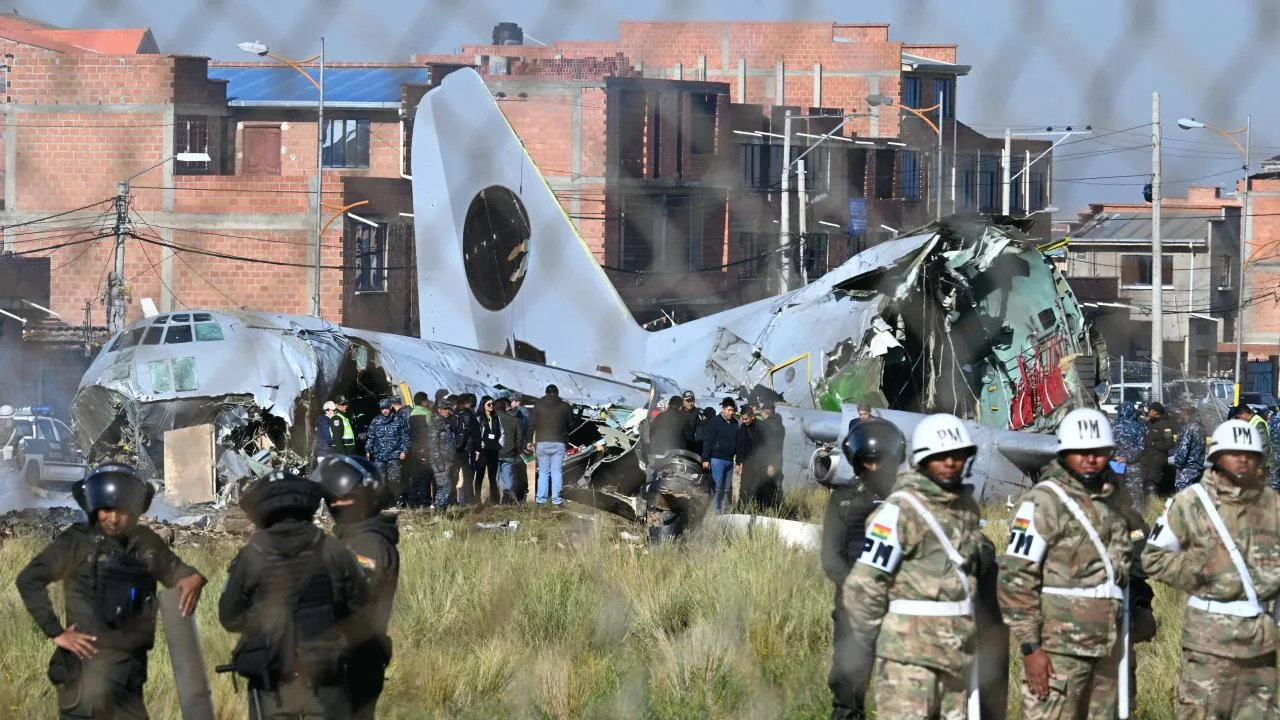
Bolivia’s Defense Minister Marcelo Salinas announced Monday that three separate investigations will be conducted into Friday’s crash of a military cargo aircraft at El Alto International Airport, near La Paz, which left at least 22 people dead.
The Hercules aircraft, operated by the Fuerza Aérea Boliviana (FAB), was transporting cash intended for the Central Bank of Bolivia when it overshot the runway after landing from the city of Santa Cruz. The plane reportedly traveled nearly one kilometer beyond the airport perimeter.
The incident sparked chaotic scenes, with individuals attempting to collect scattered banknotes. Authorities detained 51 people in the aftermath, and the government declared three days of national mourning.
Multiple Investigations Underway
The first inquiry is being led by a military board from the Bolivian Air Force, which has already taken custody of the aircraft’s black box for analysis.
Minister Salinas said two additional investigations will follow — one conducted by the insurance company and another by the aircraft’s manufacturer.
“At least two more investigations will come, that of the insurance company and that of the aircraft manufacturer,” Salinas said during a press conference in Santa Cruz.
He cautioned that the investigative process could take between three and six months, noting that the black box cannot be opened in Bolivia due to the lack of specialized laboratories for analysis.
Awaiting Official Findings
Salinas stressed that the FAB investigative board is the highest authority in the case and urged the public to wait for its conclusions to avoid speculation about the causes of the crash.
He also confirmed that the government has contacted the families of the 22 victims and the 37 injured, as well as the owners of 15 damaged vehicles, to coordinate procedures with the insurer and cover the corresponding expenses.
International
Mexico Calls for Immediate Probe After National Dies in ICE Custody
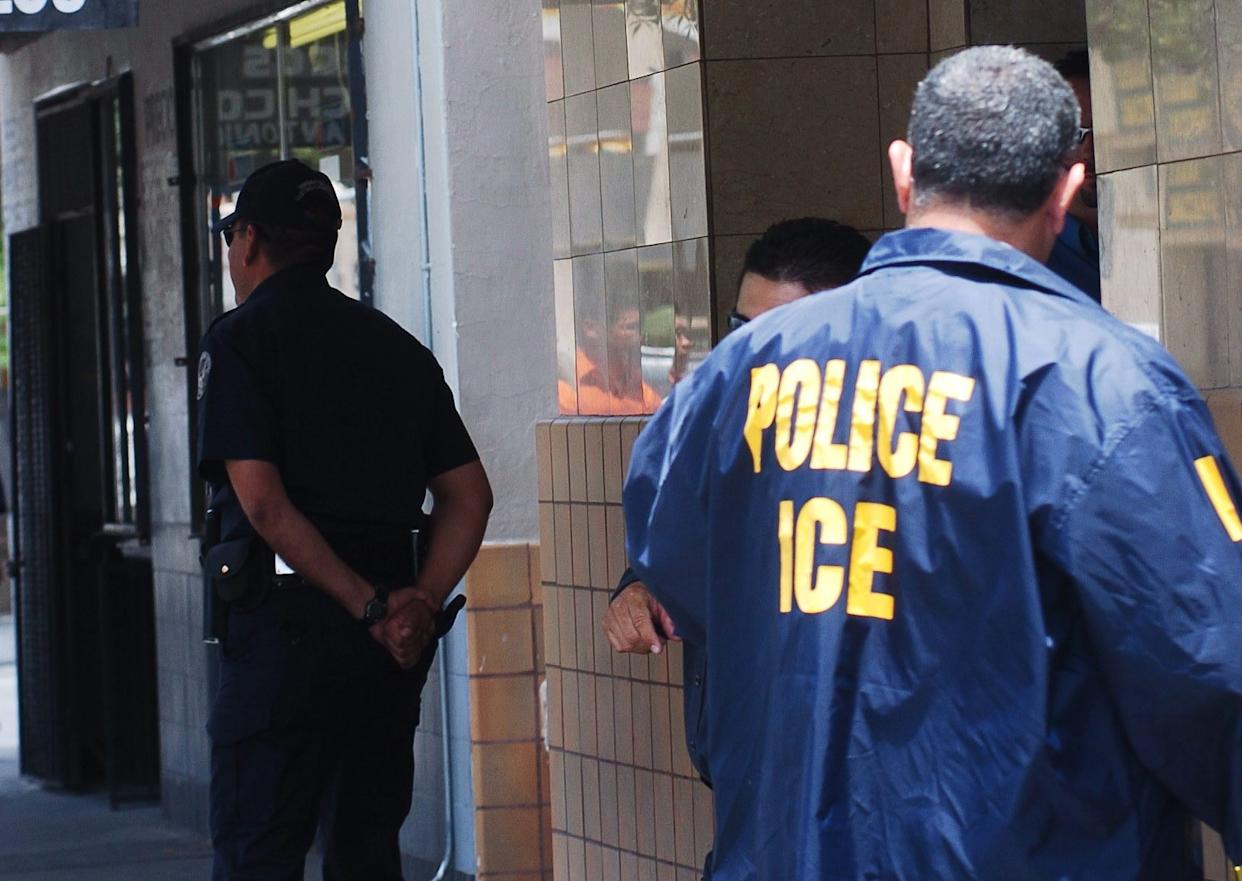
Mexico’s Secretaría de Relaciones Exteriores (SRE) on Monday called on U.S. authorities to conduct an “immediate and thorough” investigation into the death of a Mexican national while in custody of U.S. Immigration and Customs Enforcement (ICE) at a processing facility in California.
In a statement, the Mexican government described the death as “regrettable” and urged U.S. officials to clarify the circumstances surrounding the case in order to “determine responsibilities and ensure that such events do not happen again.”
Death at Adelanto Processing Center
According to available information, the Mexican citizen died at the Adelanto Processing Center in California while under ICE custody. Authorities have not yet released the individual’s identity or the cause of death.
Following the incident, Mexico’s Foreign Ministry formally requested “detailed information” from U.S. authorities, including the detainee’s medical records and custody reports.
Consular Assistance Activated
The Mexican Consulate in San Bernardino, California, has activated consular assistance protocols to provide ongoing support to the deceased’s family. Officials have contacted relatives to express condolences and offer legal guidance, as well as assistance with the necessary procedures to repatriate the remains.
“The handling of situations like this and the establishment of mechanisms to resolve them are priorities for the Government of Mexico,” the Foreign Ministry said, adding that it will formally request an investigation into any systemic conditions that may have contributed to such incidents.
Local Mexican media reported that seven Mexican nationals died while in ICE detention last year — the highest number recorded since the agency was created.
International
Anti-ICE Billboard Campaign Targets Immigration Spending in 31 U.S. Cities

More than 200 billboards criticizing U.S. Immigration and Customs Enforcement (ICE) began appearing Monday in 31 cities across the United States, including Miami, as part of a campaign highlighting the high cost of immigration enforcement operations for taxpayers.
The initiative, titled “ICE Costs Us,” was launched by the civil rights organization Mijente and will run for four weeks.
Criticism of Spending and Enforcement Tactics
The billboards feature images of ICE agents during arrests or carrying military-style weapons. According to the organization, spending on military-grade equipment for the agency has increased by 600 percent in recent years.
Several signs display messages such as:
“Your taxes are being wasted” and “ICE’s cruelty costs you $28 billion,” referring to the agency’s annual budget.
In a statement, Marisa Franco, co-founder of the Mijente Support Committee, said:
“For too long, our government has prioritized building cages and investing billions in an immigration enforcement apparatus that has left families torn apart and communities terrified.”
She added that “Millions of Americans are living paycheck to paycheck, yet this violent agency continues operating with a blank check. These decisions do not make us safer nor improve our economic security. Our billboards highlight these choices and demand a different path.”
Budget Debate and Medicaid Comparison
The campaign also draws a comparison between ICE’s funding and the estimated 17 million people who could lose health coverage under Medicaid due to federal budget cuts under President Donald Trump.
Other billboard messages seen in various cities include:
“They get billions to beat us; we get layoffs and rising rents” and “Funding ICE is a fast track to fascism.”
Organizers say the goal is to spark public debate about the allocation of federal funds for immigration enforcement and the broader economic and social impact of such policies on communities nationwide.
-

 International4 days ago
International4 days agoCocaine Production Surges 34% in 2023 as Market Expands into Africa and Asia
-

 International2 days ago
International2 days agoIran Reports 201 Dead, 747 Injured After U.S. and Israeli Strikes
-

 International3 days ago
International3 days agoTrump Floats “Friendly Takeover” of Cuba Amid Rising Tensions
-

 Sin categoría2 days ago
Sin categoría2 days agoTrump: ‘We Think It’s True’ Amid Claims Iran’s Supreme Leader Was Killed
-

 International2 days ago
International2 days agoSecurity Council to Hold Emergency Meeting on Middle East Crisis
-

 International4 days ago
International4 days agoFederal Judge Blocks Trump Policy Allowing Deportations to Third Countries
-

 International3 days ago
International3 days agoArgentina’s Senate Reviews Milei-Backed Labor Overhaul
-

 International2 days ago
International2 days agoPope Leo XIV Urges End to ‘Spiral of Violence’ in Middle East
-

 International8 hours ago
International8 hours agoBrazil’s Supreme Court Rejects Bolsonaro’s Bid for House Arrest
-

 International4 days ago
International4 days agoClinton Accuses Republican Committee of Using Epstein Case to Shield Trump
-

 International8 hours ago
International8 hours agoAnti-ICE Billboard Campaign Targets Immigration Spending in 31 U.S. Cities
-

 International8 hours ago
International8 hours agoTrump Warns of ‘Major Wave’ of Attacks as Iran Conflict Escalates
-

 International7 hours ago
International7 hours agoMexico Calls for Immediate Probe After National Dies in ICE Custody
-

 International7 hours ago
International7 hours agoBolivia Orders Three Investigations Into Deadly Military Plane Crash
-

 Central America7 hours ago
Central America7 hours agoPanama Canal Monitoring Trade as Middle East Conflict Disrupts Shipping



























